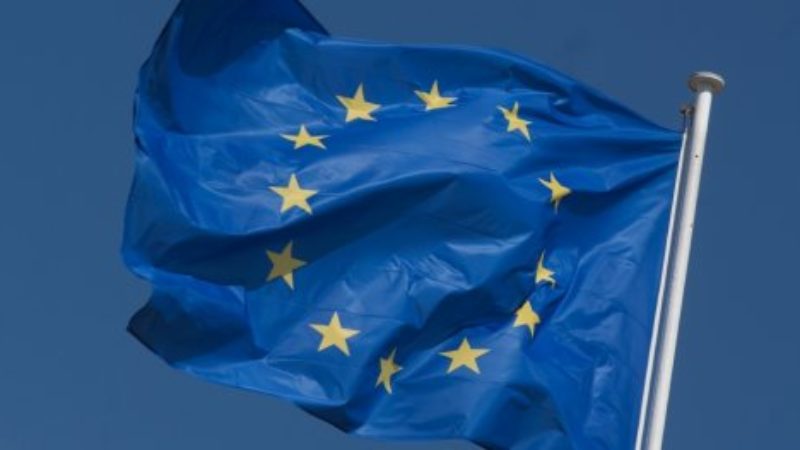
The EU is seen as that perennial obsession of the Tory right-wing fringes: the sort of issue that excites only bigoted, Daily-Mail-reading Little Englanders who peer suspiciously out of velvet curtains to rant about gay gypsies scrounging off Incapacity Benefit. When Conservative MPs staged the biggest post-war rebellion over Europe over David Cameron’s refusal to hold a referendum over EU membership, Labour activists gleefully tweeted about a renewed bout of Tory wackiness. It was an issue that helped sink John Major, and now it was back to haunt the Tory leadership.
But there is a real danger in the left abandoning a critique of the EU to the right. It should not only be knuckle-dragging right-wingers who have a problem with the EU as it is currently constituted.
It shouldn’t be forgotten that it was actually Ted Heath’s Tory Government who brought Britain into what was then known as the European Economic Community in 1973. In part, this re-orientation towards Europe was triggered by the collapse of the British Empire as former subject peoples liberated themselves from colonial rule. But it was Labour that was most fiercely divided over the issue. A year after returning to power in 1974, Labour delivered a referendum about British membership; and, acknowledging the divisions within its own ranks, it allowed Cabinet Ministers to campaign on the basis of their conscience. The fear of many of the left was that membership of the Common Market would strip Britain of its economic sovereignty, prohibiting radical, interventionist measures.
Labour’s 1983 manifesto even went as far as to pledge withdrawal. Neil Kinnock may have ended up as a European Commissioner, but he was once a passionate Eurosceptic. It was the traumatising experience of Thatcherism that led to a sharp turnaround on the left. After being battered by the most regressive Government since World War II, it seemed as though the then-European Community was the only hope for progressive legislation. Support for the EU on the left, then, was born of pessimism in the face of the neo-liberal assault.
The story is very different in other parts of Europe. In Scandivanian countries and France, for example, it is the left that is the standard-bearer of opposition to the EU project. It was the French left that led the successful opposition to the European Constitution, for example.
To begin with, Labour activists have to acknowledge that strong hostility to aspects of the EU – if not the entire project – is widespread. It is not confined to the lunatic fringes. A stronger argument would be that – during an economic crisis which is destroying jobs and living standards – voters have far more pressing issues to worry about.
We have to accept that there are real grievances about democracy that have to be addressed. The EU is now a source of huge amounts of unaccountable power in Britain. All real democrats should argue that power is only legitimate when it is accountable. The largely toothless European Parliament can either accept or veto a slate of Commissioners put to it – but their source of power can hardly be said to be the European people, most of whom wouldn’t be able to name a single Commissioner if pressed.
But the EU has also helped to drive forward a neo-liberal agenda here, across Europe, and abroad. Successive EU treaties have enshrined “free competition”, which in practice promotes the privatisation of public services. For example, the Lisbon Treaty includes the following clause: “A European framework law shall establish measures to achieve the liberalisation of a specific service”. And while it was the Tories who privatised our railways, it was EU directive 9/440 that made it a legal requirement for private companies to be able to run train services.
While the Working Time Directive (which, shamefully, the UK secured an opt-out from) sets out a maximum working hour week, a number of attacks on workers’ rights have been introduced through the EU. For example, the European Court of Justice has issued judgements that have directly attacked workers’ rights – making it possible for employers to sue unions, or allowing workers posted to another country to be employed with the same conditions as their EU state of origin, encouraging a “race to the bottom”.
The left needs to be making these arguments about the EU, because they have real implications for working people in this country. Too often, the left has been paralysed on the issue, for fear of being lumped in with the UKIP brigade. But did anti-war activists line up with the BNP just because they too opposed the Iraq war?
As a socialist, I support building ever-stronger links between working people here and abroad – and not just arbitrarily confined to other workers in Europe. Given the globalised nature of capital, this is more important than ever. But the left needs to start to find its voice on the EU – and stop dismissing all critics as bigoted, insular nationalists.



More from LabourList
Humza Yousaf woes deepen as Labour files no-confidence vote in government
‘History and poll leads suggest Labour can be bolder, even if it costs some votes’
Labour warned ‘ethical foreign policy’ inevitably sparks charge of ‘hypocrisy’